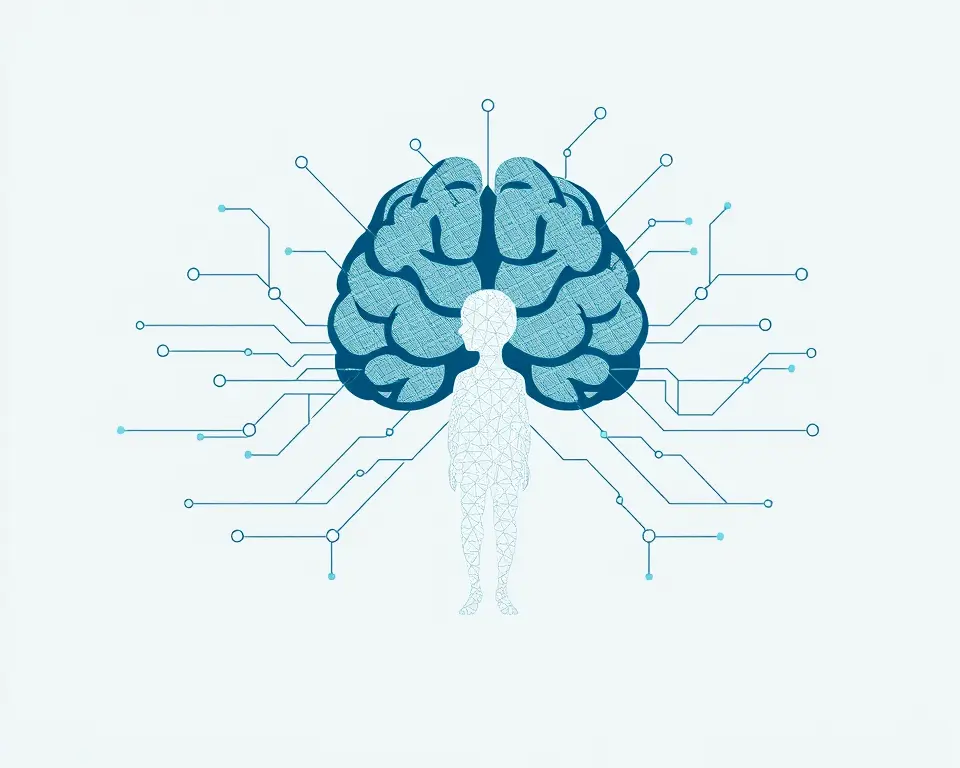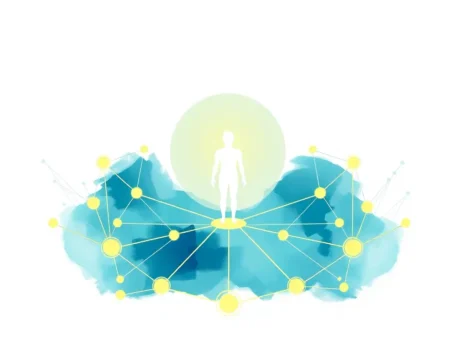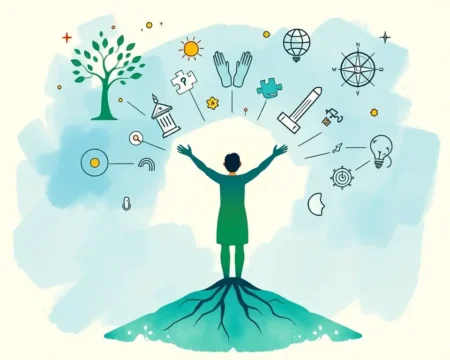Since the 1960s, the concept of therapy chatbots has existed, beginning with ELIZA, a program designed to mimic a Rogerian psychotherapist. Today, AI-driven mental health solutions are rapidly advancing. But how far can these chatbots truly go in providing effective mental health support? This article explores the evolution, capabilities, limitations, ethical considerations, and future potential of therapy chatbots.
A Journey Through Time: The Evolution of Therapy Chatbots
The journey of therapy chatbots began in 1966 with ELIZA, created by Joseph Weizenbaum at MIT. ELIZA was designed to simulate a Rogerian psychotherapist. While primitive by today’s standards, ELIZA was a groundbreaking step in human-computer interaction and laid the foundation for future developments in therapeutic chatbots.
The 1980s saw the introduction of Expert Systems in mental health, such as MYCIN and INTERNIST-I. These systems were primarily designed as decision support tools for clinicians rather than direct patient interaction but demonstrated how computers could assist in complex medical and psychological decision-making processes.
As the digital age emerged in the 1990s and 2000s, more sophisticated software tools began to appear:
- 1997: COGNIsoft was developed as one of the early software tools designed to assist in cognitive-behavioral therapy (CBT).
- 2003: “Beating the Blues” was introduced as one of the first computerized cognitive behavioral therapy (CCBT) programs, marking a significant step towards digital delivery of evidence-based therapeutic interventions.
The last decade has seen rapid advancements in AI-driven mental health solutions:
- 2015-2017: Evidence-based AI chatbots for mental health support began entering the consumer market, offering accessible and scalable support options.
- 2018: The FDA approved the first AI-based digital therapeutic for treating substance use disorder, reSET-O by Pear Therapeutics.
- 2022: OpenAI launched ChatGPT, demonstrating AI’s potential to engage in complex, nuanced conversations. Many users began leveraging it for mental health support and therapy guidance, sparking discussions about AI’s role in therapeutic conversations.
- 2022: Alongside, the first mental health app specifically designed for use in K-12 schools to include a clinician-designed AI chatbot, was launched.
The Current Landscape: Capabilities and Applications
Today’s therapy chatbots are far more advanced than their predecessors. They leverage sophisticated technologies like Natural Language Processing (NLP) and machine learning to offer a range of capabilities:
- 24/7 Availability: Chatbots provide immediate support, filling gaps when human therapists aren’t available, such as managing anxiety late at night.
- Accessibility: They offer mental health support to individuals in remote or underserved areas, mitigating geographical constraints.
- Affordability: Cognitive Behavioral Therapy (CBT) delivered through mental healthcare chatbots can cut therapy costs significantly.
- Anonymity: Chatbots offer a safe, private, and nonjudgmental space for users to open up, reducing the stigma associated with seeking mental health support.
- Personalized Support: AI-powered tools analyze patient data to provide personalized recommendations for self-care activities and coping strategies.
- Mood Tracking and Progress Monitoring: Chatbots help users track their moods, progress, and thoughts, functioning as a conversational diary.
- Early Intervention: They facilitate early intervention in mental healthcare, providing timely motivation and support.
- Translation and Cultural Adaptation: AI-powered language translation tools can be integrated into online therapy platforms to enable therapists and patients who speak different languages to communicate effectively.
Several well-known chatbots are currently available, including:
- Woebot: An AI-powered chatbot that uses cognitive-behavioral therapy (CBT) techniques to help users manage stress, sleep, and other concerns.
- Wysa: An AI chatbot that provides mental health support, particularly for individuals with chronic pain or maternal mental health challenges.
- Youper: An AI chatbot that offers personalized mental health support, including a 48% decrease in depression and a 43% decrease in anxiety.
- Replika: A social chatbot that allows users to develop a virtual relationship and receive social support.
- Tess: A psychological AI chatbot designed to relieve stress and improve well-being.
Promising Results: Clinical Evidence and User Satisfaction
Research indicates that therapy chatbots can be effective in improving mental health outcomes. A meta-analysis of 35 studies published between 2017 and 2023 showed that AI-based chatbots significantly reduce symptoms of depression.
A clinical trial of a generative AI-powered therapy chatbot, Therabot, found significant improvements in participants’ symptoms. People diagnosed with depression experienced a 51% average reduction in symptoms, while participants with generalized anxiety reported an average reduction of 31%. Those at risk for eating disorders showed a 19% average reduction in concerns about body image and weight.
Studies have also demonstrated that chatbots can lead to higher adherence rates and increased self-disclosure. Users report that AI chatbots help them manage stress and anxiety, and they are more likely to share sensitive issues when interacting anonymously with a chatbot.
The Other Side of the Coin: Limitations and Challenges
Despite their potential, therapy chatbots have limitations and pose several challenges:
- Lack of Empathy and Human Touch: Chatbots cannot replicate the empathy and human touch provided by human therapists, which are crucial for complex situations and emotional concerns.
- Misdiagnosis and Inadequate Support: Chatbots may not understand the complex use of language associated with a mental health crisis and fail to recognize symptoms and respond appropriately. Reliance on AI-generated assessments without integrating professional judgment can lead to misdiagnosis.
- Data Privacy and Security: Protecting sensitive patient data is a significant ethical concern. Data breaches and the potential for digital mental health companies to share or sell patient data pose risks to client confidentiality.
- Bias and Algorithmic Fairness: AI systems rely on predetermined training data, which may include embedded human biases. This can lead to discriminatory practices or unequal access to healthcare services.
- Over-Reliance and Isolation: Over-reliance on technology can pose risks, such as isolation and insufficient assistance during times of crisis. Users can become overly attached to chatbots and prefer them over interacting with friends and family.
- Lack of Regulation and Quality Control: The absence of clear industry guidelines can lead to companies rolling out therapy chatbots before they are ready to provide meaningful care, resulting in subpar support.
- Ethical Concerns: Ethical challenges related to data privacy, embedded bias, and misuse need to be addressed. An official AI ethics code is currently non-existent, making it problematic for users relying on chatbots instead of qualified professionals for counseling or other mental health support.
- Limited Therapeutic Range: Chatbot therapy programs may narrow the therapeutic range, as psychodynamic approaches to talk therapy may be harder to program at a high and sophisticated level using even the most sophisticated contemporary AI.
- The “illusion” of understanding: Chatbots only mimic understanding and don’t truly understand, which can cause friction when the chatbot makes mistakes.
Ethical Considerations: Navigating the Moral Maze
The integration of AI in therapy raises profound ethical considerations:
- Client Confidentiality: Ensuring that sensitive data remains secure and private is paramount. Measures must be taken to protect against potential data breaches and the unauthorized sharing or selling of patient data.
- Informed Consent: Users need to be fully informed about the capabilities, limitations, and data usage practices of therapy chatbots. They should be aware that they are interacting with AI and not a human therapist.
- Transparency: Transparency in the use of algorithms is essential. Patients should understand how the chatbot works and how its recommendations are generated.
- Algorithmic Fairness: Developers must rigorously analyze training data for bias and implement mitigation strategies to ensure equitable treatment for all patients.
- Patient Autonomy: Patients should be able to decide whether to engage with chatbot services and understand the implications of sharing their personal health information. They should always have the option to escalate concerns to a human healthcare professional.
The Future of Therapy Chatbots: A Glimpse into Tomorrow
As AI technology continues to evolve, therapy chatbots are set to play an increasingly important role in mental healthcare. The future may bring:
- Interim Support: Offering immediate help during long wait times for traditional therapy.
- Advanced Personalization: Leveraging sophisticated data analytics to provide tailored support for individual needs.
- Closing the Gap: Delivering care in underserved and remote areas where mental health resources are scarce.
- AI-Powered Translation and Cultural Adaptation: Integrating AI-powered language translation tools into online therapy platforms to enable therapists and patients who speak different languages to communicate effectively.
- Integration with Traditional Therapy: Combining AI tools with human therapy, where AI provides ongoing support, monitoring, and skill-building, while real therapists handle more complex issues and provide the human touch necessary for emotional well-being.
- Improved Accuracy: AI models are expected to achieve even higher accuracy in identifying mental health issues.
- Cost Savings: Continued advancements in AI-driven therapy are projected to further reduce therapy costs.
However, it’s crucial to remember that these tools are designed to complement, not replace, human therapists. The goal is to expand access to mental health support, provide additional resources for those in need, and potentially improve the efficacy of traditional therapeutic approaches.
Striking the Balance: Augmentation, Not Replacement
Therapy chatbots have come a long way since the crude simulations of ELIZA. Today, they offer accessible, affordable, and personalized mental health support. While they demonstrate promising results in reducing symptoms of depression, anxiety, and other mental health disorders, they also have limitations and pose ethical challenges.
As AI continues to advance, therapy chatbots will undoubtedly play a more significant role in mental healthcare. However, it’s essential to approach their integration with caution, ensuring that they are used ethically and responsibly, and that they complement, rather than replace, the invaluable expertise and empathy of human therapists. The key lies in finding the right balance between technology and human connection to provide the best possible support for those in need.










